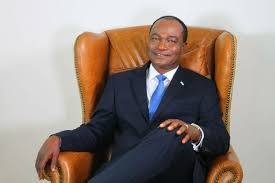How democracy came to roost: The Middle East boomerang
The apparent paralysis that is gripping the International Community, on the question of how to solve the Libyan crisis is becoming glaringly obvious to the eagled eyed politician or even the lay man on the street. When Egypt and Tunisia were recently involved in similarly different situations, President Obama was seen by many as a breath of fresh air in settling international disputes. Unlike the hawkish approach of the previous White House tenant, Obama and the White House press office fed us on a daily diet of a running commentary of the goings on in especially Egypt. Huge phone bills between President Obama‘s team and that of Mubarak became the currency of the day. Without a single bullet from the West, Mubarak left office, albeit with some loss of lives. Compared to what is going on in Libya today, many will say that it is a small price to pay, although his departure was not worth a single drop of blood in real terms. (Photo: Abdulai Mansaray, author)
The situation in Libya is very different. Like I mentioned in my last article, the fact that the protest in Libya has now taken a military flavour, the moral advantage that the protesters had seemed reduced as they fought fire with fire. The use of force against force has transformed it from a peaceful protest to an armed insurrection or civil war. By this being a civil war, it seems to give the impasse some semblance of internal affairs. It is clear for all to see that Gaddaffi’s brutality against his people is defying and will continue to defy human comprehension. With his record, it is hard to imagine any other viable method that is available to the “rebels”, to remove him and his cohorts from power. The armed insurrection seems to be one of the few available; a luxury that the Libyan people can ill afford. The required backing from the International Community has never been more needed. Sadly, the International Community seems to be suffering from political arthritis, as the bickering continues about the need for military intervention.
Notwithstanding the unenviable role of inheriting the twin problems of finishing the jobs in Iraq and Afghanistan, Obama is yet to face his sternest test in Libya. Forget Sarah Palin, forget the Tea Party. The recent problems in Tunisia and Egypt might pale into insignificance; as only precursors to what is facing the International Community in Libya now. The International Community appears lost about what to do with Libya. Many will be looking to the United States for leadership and guidance. Obama has attempted to provide that leadership and military intervention has been bandied along the marbled corridors of the diplomatic highways. Understandably, the Libyan crisis is happening at a time that the world is collectively experiencing economic defibrillation from an economic myocardial. The recent lessons learnt in next door neighbour Iraq is too vivid a memory to ignore. The use of foreign intervention may even work in the dictator’s favour as indicated by the Opposition Leader Mustafa Abdul Jalil, who is requesting a “no fly zone” but opposing any foreign presence. By implication, he is preaching some form of nationalism; a power hunger that can easily be tempered by self-deception. His attitude and opinion might be reflective of the Libyan people themselves.
Gaddaffi has been telling them that the revolt is the work of The West and Al-Qaeda and very soon, it will be about oil and an attack against Islam. He is now preaching patriotism; a commonly misguided conviction that his country is superior to all others because he was born it. Ronald Reagan once said that “this mad dog of the Middle East has a goal of a world revolution”. People like Gaddaffi, who make peaceful revolution impossible will make violent revolution inevitable; as we see now.
There are a lot of lessons to learn from the political hurricane that is sweeping the Middle East. Firstly, the western world should take a keen look at itself in terms of their foreign policies, not only in this region but the world at large. It is obvious that foreign policies are blue printed by interests and strategic concerns. The difficulty to get a consensus on such an approach is difficult, as different interests make up the so-called United Nations; when Russia and China remain as opposition designates.
These two countries have continuously gridlocked every diplomatic effort against regimes like Gaddaffi’s. With China’s record on human rights, it is hardly surprising that people like Gaddaffi are allies. No surprises that at the start of this conflict, Tiananmen Square was one of his first reference points. What Russia and China fail to understand is that, although their interests as members of the International Community vary, each one is an artery to the heart that pumps life through the body politic, and each is important to the health of democracy; as democracy works when people claim it as their own. Woodrow T. Wilson once said that interest does not tie nations together, it sometimes separates them. But sympathy and understanding does unite them.
Democracy has been described as the worst form of government except all those other forms that have been tried from time to time. It is well and good to preach democracy but it smacks of hypocrisy when the same governments indulge people like Gaddaffi. He is now killing his people with the same arms that were made anywhere but Libya. And when they were sold to him, did these governments think that such weapons were bought for picnic and party celebrations? By implication, it sounds like democracy consists of choosing your dictators. Do these recent events mean that democracy is the art of bludgeoning the people by the people and for the people? Like President Obama said in 2009, “the strongest democracies flourish from frequent and lively debate(s), but they endure when people of every background and belief find a way to set aside smaller differences in service of a greater purpose.” This protestation has never been truer. This is more so in the Cote D’Ivoire, a country that had dabbled with a semblance of democracy under Houphet Boigny, ten years of internecine wars but currently being suffocated by political apnoea.
In Cote D’Ivoire today, a reported 40,000 refugees have travelled over to Liberia and its environs, because one man, and only one man is trying to undo a whole principle and all the good work that has been put in place for a people that have seen a fair share of suffering. It is difficult to comprehend how Laurent Gbagbo can hold his people and the whole International Community to ransom, yet the UN Security Council is hastily convened when Gaddaffi, a seasoned recalcitrant and political pariah sneezes. This makes democracy look like a five minute conversation with the average man. We know that in every well-governed state, wealth is a sacred thing but in democracies, it seems to be the only sacred thing.
If Laurent Gbagbo is allowed to hold his people to ransom and unleash more suffering on them while the UN provides lip service, indications are that the International Community may be experiencing some political menopause. Gbagbo should know that the ballot is stronger than the bullet and that leadership is about acceptance of the unfamiliar. The International Community should politically decapitate Gbagbo by first expelling all his foreign and diplomatic corps from every country. Alternative embassies should be opened and total political and international recognition for Quattara’s government established for starters.
The International Community seems to be double thinking; which is the power of holding two contradictory beliefs in one’s mind simultaneously, and accepting both of them( George Orwell). The so- called democratic process that is taking place in Cote D’Ivoire today looks like a system of quarantine for tyrannical desires. This system is currently politically bankrupt and it looks like the art of running the circus from the monkey cage. No wonder, some people see democracy as a pathetic belief in the collective wisdom of individual ignorance. You are encouraged and taught to go through a democratic process, but when one man stands against this, the high priests are nowhere to defend it.
If anything can come from the debacle happening in the Middle East, Western governments should start re-writing their foreign policies and if they can practice what they preach, the world might be a better place. As a suggestion, a dose of ethical consideration, as a building block for foreign policies will not go amiss. If a principle is not worth fighting for, it is not worth having. You don’t arm a dictator with rocket propelled launchers and expect him to have a bonfire with sparklers. If freedom is short of weapons, we must compensate with willpower. Those who have sold weapons and provided Gaddaffi with the oxygen for terrorising his people should stop pretending to be sanctimonious. Jimmy Carter once said, “We cannot be both the world’s leading champion of peace and the world’s leading supplier of weapons of war”. A toast to the weapons of war; May They Rust in Peace.
Abdulai Mansaray
Stay with Sierra Express Media, for your trusted place in news!
© 2011, https:. All rights reserved.






